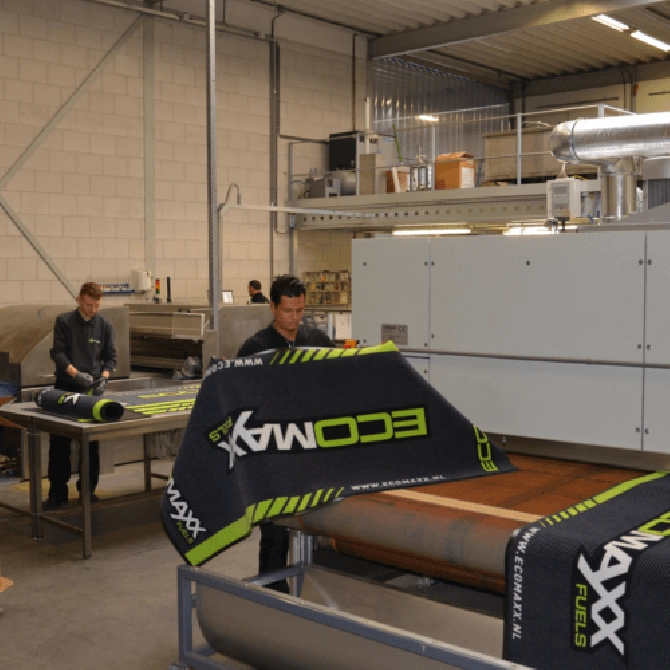
Ten Biggest Legal Mistakes Tech Start-ups Make
This month my company (A City Law Firm) marked our ten-year anniversary, which has made me think back to our first year, how we started and some of the early mistakes we made. For one thing, within a year of our launch, we had to restructure the entire business and there were so many hurdles we had to overcome – in the early days it really was about survival.
What’s fascinating is many of the mistakes we made back in 2008 are the same mistakes that many tech start-ups make time and time again. I know this because over the past decade we have represented hundreds of tech businesses – from start-ups to big businesses – and I find that time and time again the same issues crop up.
So what are they?
1. Not having a strong shareholders agreement – or discussing, formulating and documenting the business plan with co-founders
I intended to found my business with three others, however, I soon realised that our goals and objectives were sadly not aligned; our work ethics were very different and our long-term motivations out of sync. Luckily, I had drafted a very good partnership agreement so managed to break free from what would have been a disastrous relationship. Luckily this enabled me to continue with A City Law Firm with just me at the helm, but not all businesses I have encountered can say the same.
Not only do you have to be careful to choose the right partners, but you need to clearly document your goals in a shareholder’s agreements. This means that as founders you can build upon the platform you have created together, but if it goes wrong you have a means to address the problem not just having to wind up the company. The key is choosing the right partners, talking candidly and asking the tough questions at the beginning.
2. Having poor contracts or no contracts – hitting your cash flow
You need to understand your marketplace, your competitors and what you need financially to be able to grow.
Cash is king. Be realistic with budgets and prices and ensure your contracts protect you – not only with clients but with employees, suppliers and contractors. It is fundamental that you closely monitor payment timescales with clients, especially if you are working on large projects. Corporate clients may expect 60 – 90-day payment terms but your sub-contractors will not.
It’s also important you pay yourself a reasonable salary, especially when you are seeking investment, otherwise, if the founder is distracted, the business is not going to progress. Any investor will want to see this factored into any business plans and financial models.
3. Not having good staff contracts or options to incentivise them
A large part of any company’s budget will be put towards recruitment, training and retention of its employees. Despite this, there is a real risk that those key people could walk out of the door leaving you without the requisite skill pool you need, but worse yet, there is a real possibility that they may also take all of their knowledge of your business and pass it to a competitor.
Many businesses focus on many things but staff retention and protection against staff competition is often neglected. This is especially key in the tech world as the opportunities for work are so great.
From a legal standpoint, it is important to:
• Have tight employment, contractor, consultancy and sub-contractor contracts in order to protect your IP and confidentiality. It is also important to have restrictive covenants to avoid staff taking your know-how in terms of clients, IP or staff to a competitor or setting up on their own.
• Consider EMI options as they can give staff the feeling of being part of the fabric of the business and as you succeed so do they in terms of profit sharing without actual cost in the short term to you. This also can attract more specialist experts to the team where cash is not readily available ;
Overall though the key is to find ways to incentivise and look after your team. If you can communicate your vision to the team so that they are working side by side with you, this inspires loyalty and dedication as you are all working from the same plan with the same goal.
4. Intellectual Property & the mistake of that ‘handshake deal’
IP ownership can only be granted or transferred (“assigned”) in writing. As such, if your freelance coder or developer has no contract with your business then they could actually own the IP that they have helped design, not you.
If there is a dispute, then they could hold this to ransom causing a costly dispute or loss of your code or design. You need to ensure you have checked these contracts carefully and that you actually have one carefully drafted in your favour. Many tech companies work with friends and often make arrangements based on goodwill, but when a dispute arises without a contract you are at the mercy of the designer.
If you are bringing your designing or coding in-house, then it is especially key to convince an investor you have secured long-term staff and that the IP ownership will effectively transfer to you.
Many businesses fail to check that their proposed company name or branding is free to trademark. This should be carefully checked before a large budget (or large budget relative to the size of your business) is set aside for branding and marketing as otherwise, you may find yourself having to start all over again.
5. Rushing to Investment and giving up equity in the company
I managed to self-finance my business throughout without taking in partners or investors. I did consider these at points along the way and even had offers of mergers and partners coming into the business but having carried out checks into these entities, I often found hidden skeletons and things I was too anxious to continue to explore.
If you are seeking investment, which is often a necessity for tech companies scaling up, it is vital that you carry out your due diligence on what’s available, what the risks are and who the investor actually is.
– Do they understand your sector?
– Have they got the resources to add more money at a later date if that’s what you need?
– Can you approach them if things go wrong?
– Do they have competing interests in the marketplace?
– What is your exit plan for them?
– Have you also explored grants available for tech, innovation offerings, R & D credits and other means of funding?
Many people are often dazzled by the cheque and sign a contract… but that’s just the start of the journey.
It is important that you consider whether you want to get involved unless you are certain you have aligned goals, exit plan and can handle a crisis together.
6. Not being investor ready
When start-ups do find the right investor, a common pitfall is they are not investor ready because they haven’t got their house in order.
For example, they have not allocated and issued shares correctly. Their articles do not reflect the workings of the company. If an investor picks this up, it can make tech founders look careless and could scare off the investor.
More broadly other things that put investors off include inaccurate statements that have been put in writing… such as:
-“This is unique to the market, no one else is doing this”. This is often a bold statement that just isn’t upheld or accurate;
– “I don’t need a salary for 1-2 years; I can use 100% investment on the business”; wrong! No one will invest in someone who can’t eat and pay their bills!
– “My business is valued at £10 million because it’s going to be worth that in two years when we build our technology”. Can you support that with figures and market research? Be realistic and able to evidence all assertions.
7. Not understanding how markets are regulated
Many businesses, especially those in disruptive markets, need to be regulated or are covered by additional regulations or laws.
Many fintech or ICO companies need to be regulated and choose to risk investment or token raises prior to taking proper advice or considering the proper process exposing you to an FCA investigation.
This is not an issue which only affects those in financial markets but includes among many others those in advertising, legal services/legal tech, recruitment, packaged holidays etc. Knowing your marketplace, sector and taking advice is essential prior to any public offering.
8. Not taking experienced advice and creating an ecosystem
Tech developers are necessarily geared to be financial directors or HR managers yet running a business these roles become fundamental. Not getting good advisors on board early enough is a common mistake. A good lawyer, accountant and tax advisor saves you money and pain at a later stage, especially if they can secure you EIS or another favourable structuring. A good FD helps secure investment and cash flow by managing the budgets and financial forecasts, they also add the commercial know-how into your passionate pitch deck. Downloading templates; googling advice I appreciate happens because of the costs involved, but if you want your business to succeed you need tailored, personal advice and support. I know this is something I have benefited from greatly as I brought in consultants to help me and train me in my areas of weakness. Admitting these gaps in my knowledge and bringing experts in has helped me scale up.
9. Not having skin in the game & asking too little
If you are seeking investment for your tech business you need to start with securing some capital yourself or through your contacts. This shows investors you have faith in your offering, which then means they are more likely to match. This is something I hear frequently from equity investors, so try friends and family first. Another common mistake is asking for too little which cannot be sustained and then you have to go back to the platform or investor for money which could result in them losing faith in your financial model. You need to forecast and present realistic figures so you don’t ask for too much or too little.
10. Don’t let the cat out of the bag
If you don’t have a signed NDA and if you discuss a potential or pending patent you could lose the rights. Discuss the details of your tech, design or offering in as much detail as you can to secure an investor or client, but where possible secure an NDA to protect your confidential trade secrets or ideas or Patents. They may be hard to enforce, often a concern of many so they don’t bother, but it’s a deterrent; it protects you Patents and it’s a good starting point for an injunction if someone tries to reproduce your tech.
Karen Holden is Founder of A City Law Firm























